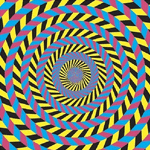|
|
 |
Dusted Reviews
Artist: Audion Album: Suckfish Label: Spectral Sound Review date: Oct. 24, 2005 |

|
|
|
 |
Audion is Detroit techno wonder-boy Matthew Dear’s most virulent alias. Suckfish feels like a contagion, some airborne parasite worrying away at the immune system, eating away at Dear’s atoms and reducing his productions to their very essence. In retaliation, Dear beefs up the skeleton, leaving all the unnecessary details to one side. Suckfish is reduction at its most physically compulsive.
These Audion recordings thrive on nervous energy, sounding like the twitchy mumblings of a speed freak at their most hyperactive. Everything coils tense and taut, bouncing like springs and punching like pistons. Dear uses noise to unsettle the tightly wound structures of these pieces – the snare in “Your Place or Mine” forces its way between the constituent elements of the composition like a rush of hot, poisonous air, and the hissing recesses of “Rubber” sound strangely ‘evacuated,’ a rush of cold noise swarming the pliant rhythms that gird the song.
The ‘swarm’ is one of Suckfish’s key motifs. “The Pong” is the disc’s pinnacle, squeezing an acid squeal through 1001 variations, a splattery blast rasping and spluttering all over Dear’s needle-point, pin-prick beats. “Just Fucking” is dirtier still, slipping through your hands like an unnameable viscous liquid. “Titty Fuck” makes real on the album’s sexualised promise, dotting sprays of bodily fluids over a slick-sheen surface. For all the innuendo of Dear’s song titles, though, his vision of sex is both resolutely non-committal and somehow abstracted from the concrete physicality of the moment: it is a theory of sex, a positing of possibility, as opposed to the act itself.
Rather, Suckfish is a diary of psychosomatic autism, a self-imposed delirium of monomaniacal compulsion. It takes Dear’s pointillist productions to near-brutal ends: stripped of their excess and their flesh, you see the patterns of tendons, veins, joints and bones that make up his tracks. Unsurprisingly, they look more like rusted, diseased circuits.
By Jon Dale
|







